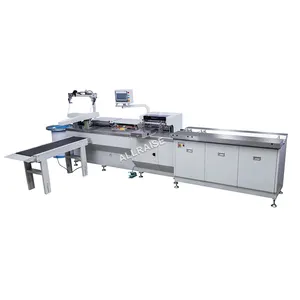Popular in your industry
















Related Searches:

























Top categories
About library machine
Library machines are devices designed to automate and streamline library tasks, enhancing the management and accessibility of information resources. These machines are equipped with advanced technologies that provide users with efficient library services. Some of the most common types of library machines include self-checkout kiosks, RFID systems, and automated book sorters. These machines are crucial for modern libraries, as they improve operational efficiency and offer users a more convenient and interactive experience. For more on library machines, explore the following sections.
Key functions of library machines
Library machines offer several key functions that enhance the overall library experience. First, these machines simplify the borrowing and returning of library materials through self-checkout kiosks. These kiosks allow users to independently check out books, reducing waiting times and enhancing user autonomy. Second, library machines improve inventory management through technologies such as RFID systems. RFID tags embedded in library materials enable automated identification and tracking, streamlining tasks like shelf management and inventory audits. Third, library machines support information retrieval by providing digital catalogs and search terminals. Users can easily locate resources within the library using these user-friendly interfaces. Moreover, these machines facilitate the reservation and renewal of materials, contributing to a seamless library experience.
Features of library machines
Library machines incorporate various features to meet the diverse needs of libraries and their users. One common feature is the integration of user-friendly interfaces, including touchscreens and intuitive navigation menus. These interfaces enhance accessibility and ensure that users can interact with the machines effortlessly. Additionally, many library machines are equipped with robust security measures to protect library materials. For instance, self-checkout kiosks may utilize barcode scanning or RFID technology to prevent unauthorized borrowing. Furthermore, the automation capabilities of library machines contribute to increased operational efficiency. Automated book sorters, for example, can categorize and shelve returned items, reducing the workload on library staff and improving the overall organization of materials. Moreover, the scalability and customization options of library machines allow libraries to adapt these technologies to their specific requirements. Whether it is expanding the self-checkout system to accommodate more users or integrating additional features for digital resource management, the flexibility of these machines is a significant advantage.
Benefits of library machines
Library machines offer numerous benefits to both libraries and their patrons. For libraries, these machines significantly enhance operational efficiency by automating routine tasks such as inventory management and check-in/check-out processes. This automation not only reduces the workload on library staff but also allows them to focus on providing better customer service and engaging in more value-added activities. For users, library machines improve the overall experience by providing self-service options and easy access to information. The self-checkout kiosks enable quick and convenient borrowing, catering to the busy schedules of modern library users. Additionally, the digital interfaces and search terminals of these machines simplify the exploration and discovery of library resources. This enhanced accessibility contributes to a more engaging and user-centric library environment. Furthermore, library machines play a vital role in promoting digital literacy. By incorporating technology into everyday library operations, these machines familiarize users with digital tools and resources, preparing them for the digital landscape. Overall, the benefits of library machines extend to operational efficiency, user experience, and the advancement of digital skills.


















